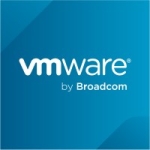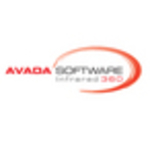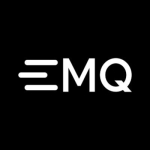We use it in a number of our applications for message queuing. As a broker dealer, it gives us the ability to queue things up and to send them out at a different time; and it works really well. We go to different reports, and get options and other features from other areas, so we need to queue up the MQ piece of it, have it wait, and then release it when we're ready to release it. That's a great feature.
It gives us flexibility when it comes to offering different projects or different types of solutions to customers. Instead of somebody having to sit back and wait for something, we give them the option now to be able to say, "Hey, we can give you these 10 things, and you can get all 10 back," without having them get six now, and come back later to get something else. They can get everything at one time and it looks like one portfolio of stuff versus it being six or seven different things at one time. MQ gives us that feature.
It's probably more like everything else. We're running into this world where everything – MQ, mainframe – is looked at as legacy. I know that it's not, but if it could be a little more GUI-based; if it could be a little bit easier to manage.
I hire people who work for me who are in their 70s all the way to people who are in their 20s. For people in their 20s, when they're working on the mainframe, when they're working on those kinds of MQ solutions, they don't really get it. Sometimes they want to run to something else or use something else. If it was a little bit more user friendly, or more gen-x friendly maybe, that would be the best benefit. The tools work. All the tools on the mainframe, all the tools that are considered legacy or dinosaur tools, they do a great job. They stay up; they run. They're very reliable. They're very scalable.
The amount of work that these things do is just amazing. You don't have to reboot them every time there's a problem. You don't have to have 20 people look at 20 different things. It's usually two or three people, "This is what the problem is", and you fix it and you move on. It's a very good toolset. But having somebody younger be able to work on it would be really, really helpful.
We've used it for many, many years. We use it on the client, a regular Windows platform. We also use it really, really heavily on the mainframe side, and it's very stable. We've had very few problems with it. When we do have problems with it, it's usually the application, not the actual MQ solution.
I haven't had any scalability problems. Most of the things, if there is a problem with scalability, it's because we haven't turned it on or we haven't done it ourselves. When we actually promote the features that are there, when we have the time to dig down and turn those things on and release those things, we don't have any problem scalability-wise.
We've had times where we've had to actually open up PMRs and things like that. But for MQ, it's very, very rare. We use CICS; we use WebSphere itself; we use DB2; so, we use a ton of other IBM features. With MQ there are very, very, very few problems.
When we do use tech support, they're very responsive 99% of the time. There might be one or two times where maybe something new will come out and they might have to come out with an actual fix or something, and develop it. It might take a little time to do that but usually, it's very responsive; very good thing.
I was not involved in the initial setup. I was a DB2 engineer, a systems programmer, for many years. Then I moved into management, into the middleware area, which had CICS, MQ, and other products. Then I actually moved up into a director and now, I'm director of mainframe services. I wasn't involved in the actual initial setup.
Some of the things have been around for 20 years or so, but I've been involved in probably five or six upgrades, other deployments and other feature turn-ons that MQs contributed to. I was heavily involved with that, but not as far as bringing it up and installing it from the beginning, no.
It was already there when I came to the company some 13 years ago; already in place. But I've managed it for probably 8-9 years.
I know open source is a big thing these days. I know a lot of people are talking about going out and buying open-source things or trying open-source things. I say, “Stick to products that have been around, that have been proven, and that you have the support of a vendor behind you who's willing to look at these things and develop around you.” IBM isn't a perfect company. It's got a lot to deal with, when you talk about other startups and other people trying to do the same things that it's been doing for a number of years, but in the long run, it's a good company, and I would say "stick with it".
For MQ and products that have been proven, people need to take the leap and use some of these things in the cloud, use it with Linux, and use some of the new features that IBM has. I work on a mainframe. It's a powerful machine. It does millions and millions of transactions every second, and it just doesn't miss a beat. If it has enough CPU, enough power behind it, it will just crank out, and it just does it day and night. I'd say stick with the true, hard-driven, really dedicated solution.
I have worked in the industry for many years. I worked on the mainframe side when I first started. I went into the distributed side years after that. I'm talking 20 years, and then another 13 or 14 years after that, and I went back into the mainframe world. I've dealt with a lot of products, a lot of different solutions, and there have probably been three or four that do what they're supposed to do and not have a lot of problems. MQ's probably one of the quieter ones.
Sometimes you put something the wrong platform. Sometimes it's not configured right, and you hit some bumps in the road in that way. I did it with WebSphere; I did it with DB2; I've done it with CICS; I've done it with SAS; I've done it with a lot of solutions; Windows, networking, storage. I've managed all those different areas and MQ's a very quiet product. It does what it's supposed to do.
When it hiccups and has a problem, it's usually because someone did something wrong or wrote something wrong, and now it's more of a victim, and it needs to get corrected. Once that gets corrected, it does what it's supposed to do. I don't want to give anything a perfect rating because nothing is perfect, but it's a really great product. It doesn't do a lot of stuff, but it does what it's supposed to do, and that's the main thing.
In general, when I’m looking to select a vendor to work with, I need a vendor who really understands my customers and my needs. I know it's hard sometimes to build a solution that fits everyone's needs, but when I buy something I want someone to be able to couple with me and help me through this process. Every problem that I have, every little road bump that I run into, I want someone there to hold my hand. Engineers are good; administrators are great. These guys will come up with solutions but when there's a problem, I want somebody there to help me; to take responsibility.















